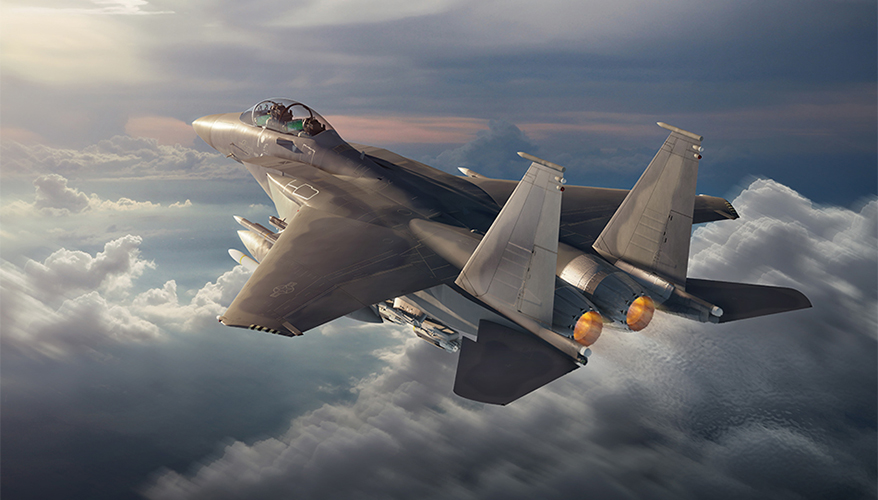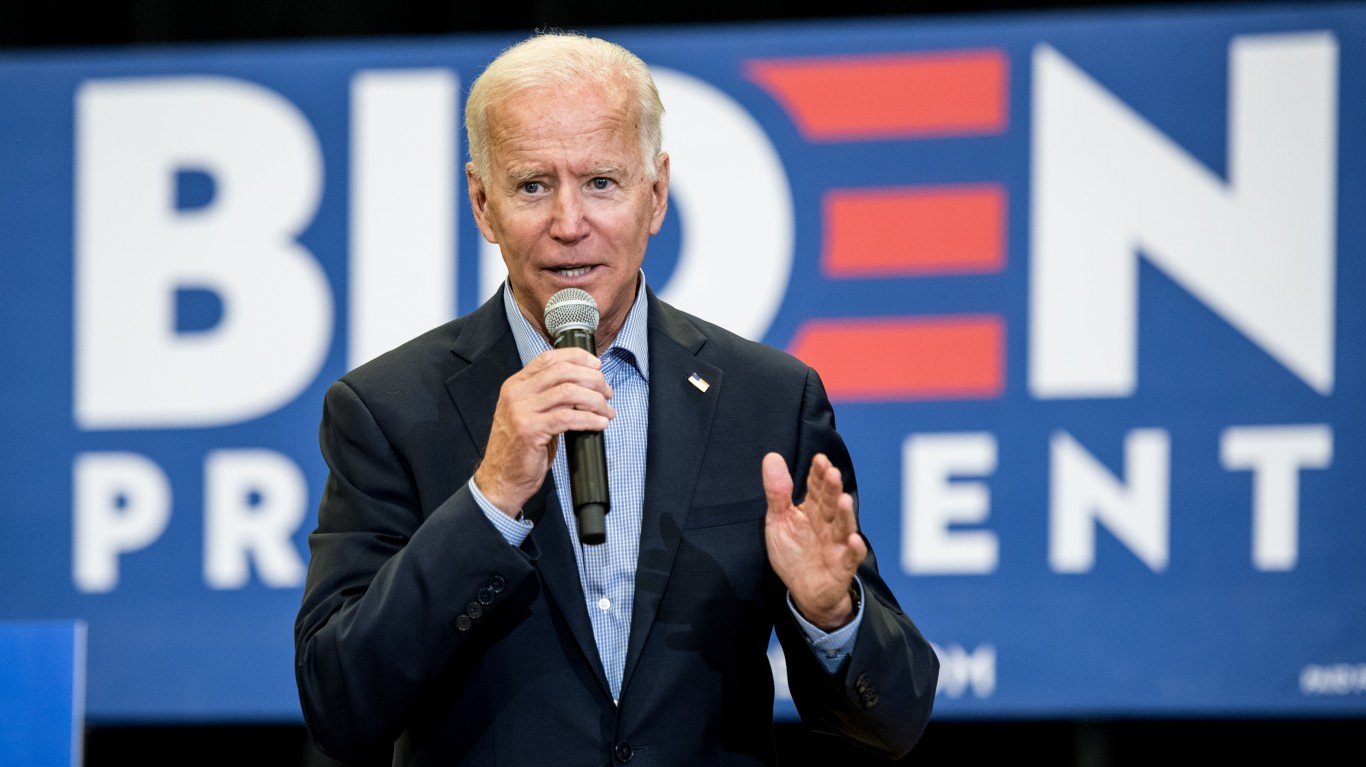

On the same day that the U.S. Air Force awarded a $1.2 billion contract to Boeing Co. (NYSE: BA), the head of the service’s acquisitions department said that if the country’s manufacturing capacity continues to slip, the U.S. Department of Defense may find it necessary to nationalize major acquisition programs in order to meet the country’s defense requirements.
Will Roper, Assistant Secretary of the Air Force for Acquisition, Technology, & Logistics, was quick to say that the Pentagon has not yet begun such a discussion but that it’s not “out of the tea leaf reading.”
In a Wednesday press conference, Roper said he was surprised at the lack of concern at the Pentagon over the “shrinking defense industrial base” in the United States. The problem, he believes, is not that industry is worse but that major programs are “so few and far between” that major defense contractors have no choice but to make huge investments in winning whatever contract is on offer.
To make major contracts pay off the investments, companies currently need to secure long-term maintenance and repair contracts to have enough time to recover costs and make a profit over the program’s entire lifetime. According to Roper, modernizing and maintaining military aircraft after they reach 15 years of service raises the costs of the programs by 3% to 8% a year. It’s in those percentages that the defense contractors make their profits.
Roper is suggesting a new scheme wherein the cost of a new Air Force program essentially equals the sticker price of the aircraft. That means that upfront costs would be higher but that costs over time would be lower. The savings would come at the expense of the contractors, though, and they are pretty sure to resist or find a way to skirt any change that would reduce their overall defense revenue stream.
Boeing is just one firm that could be affected by some kind of nationalization of military programs. Lockheed Martin Corp. (NYSE: LMT), the maker of the F-35 Lightning II Joint Strike Fighter plane, and Northrop Grumman Corp. (NYSE: NOC), currently developing a B-21 bomber capable of delivering a nuclear payload, could get hurt by such a move. Raytheon Technologies Corp. (NYSE: RTX) supplies Pratt & Whitney jet engines for a variety of military aircraft, and the company’s Rockwell Collins division is a major supplier of parts for the aerospace industry. General Electric Co. (NYSE: GE) is also a manufacturer of jet engines for a variety of military jets and helicopters.
Here’s a look at some of the big projects that each of these five firms has on its books along with potential share price gains.
Lockheed Martin is not only the largest (by total defense contracts) of the U.S. defense contractors, it is also the largest in the world. In 2018, the last year for which data is available, Lockheed had $50.54 billion in defense-related revenues, representing 94% of the company’s total revenue for the year. The F-35 fighter contract is estimated to be worth some $1.5 trillion by the time the program ends in 2070.
After a booming 2019 that saw shares gain some 60%, the stock now trades at around $363.90, with a consensus 12-month price target of $433.75, implying a potential upside of 19%.
Boeing’s defense business has improved and helped soften (a little) the blow to the company’s fortunes caused by the grounding order for its commercial 737 Max following two fatal crashes that killed 346 passengers and crew. The company’s KC-46A Air Force tanker has been hit with a number of problems, but the company was just awarded a $1.2 billion contract to supply eight new F-15EX fighters of a planned contract total of 75 new planes over five years.
Boeing stock added just over 4% in 2019. At around $182.40 a share, the stock now trades above its consensus price target of $177.80.
Raytheon, which completed its merger with United Technologies in April, had been integrating its Rockwell Collins parts business prior to the merger. In 2018, nearly $33 billion of combined Raytheon-United Technologies revenue was generated by the defense business.
The company’s stock traded around $62.75, with a price target of $76.25, implying a potential upside of 17.7%.
Northrop Grumman, in addition to the B-21 contract, was the sole bidder on a contract to upgrade the nation’s nuclear arsenal. The contract is estimated to be worth some $85 billion over the next several years.
Northrop’s stock traded at around $302 recently, with a price target of $393.18. That implies a potential upside of more than 30%.
General Electric’s aviation division generated nearly $25 billion in revenue during 2019. Of that, about $4.4 billion was attributed to defense programs. The Boeing contract for the F-15EX fighter does not include $101 million that GE will receive to build and service engines for the new planes. As a percentage of GE’s 2019 revenues, engines for military use accounted for about 5%.
GE stock traded at around $7.10, compared with a consensus price target of $8.19. The potential upside on the stock is about 15.4%.
Sponsored: Attention Savvy Investors: Speak to 3 Financial Experts – FREE
Ever wanted an extra set of eyes on an investment you’re considering? Now you can speak with up to 3 financial experts in your area for FREE. By simply
clicking here you can begin to match with financial professionals who can help guide you through the financial decisions you’re making. And the best part? The first conversation with them is free.
Click here to match with up to 3 financial pros who would be excited to help you make financial decisions.
Thank you for reading! Have some feedback for us?
Contact the 24/7 Wall St. editorial team.
 24/7 Wall St.
24/7 Wall St.

